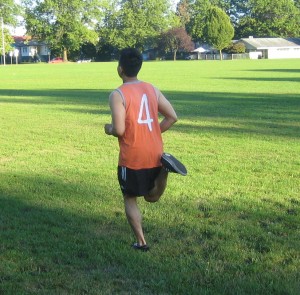The heart beats at about 45 million times in a year but this tends to vary based on factors such as gender, age and level of physical activity. The normal heart rate ranges between 50-100 beats in a minute. Nevertheless, a resting heart rate below 80 beats in a minute is still considered normal. The heart rate has a large variability and can change frequently throughout the day. There are main factors that can influence the heart rate that you should be familiar with.
Body temperature
Once the body temperature changes, it can affect the heart rate. This is considered as one of the thermoregulatory changes that occur in order to prevent the core temperature of the body from increasing or decreasing. The heart rate will increase once heat is acquired such as in warm climates and while exercising. When the body loses heat during cold weather, the heart rate will drop to preserve the core temperature.

Exercise
When an individual exercises, the heart rate will increase to allow the increased demand for oxygen and removal of carbon dioxide to and from the muscles. The heart rate can increase 2-3 times higher than the resting heart rate which depends on the intensity as well as duration of the exercise.
Exercising on a steady basis will reduce the resting heart rate and considered as a healthy adaptation. It is important to drink water before, during and after exercise to prevent dehydration. Once the individual becomes dehydrated, it can increase the heart rate and add more stress on the heart. You can learn measures to prevent dehydration by enrolling in a first aid course today.
Eating
When eating a meal, the heart rate will increase to help with digestion. A higher amount of blood is driven toward the gastrointestinal tract to help with the digestion of food. When larger amounts of food are eaten, the heart rate can intensify for a longer period. Take note that the heart rate can rise higher than 100 beats in a minute which reaches a tachycardic rate due to eating.
Age
As one starts to age, the resting and average heart rate will not change drastically. Nevertheless, the maximum heart rate reduces as an individual gets older due to the physiological effects.
Gender
It is important to note that women have higher heart rates than men while sleeping and when awake. Women are smaller than men and would require a faster heartbeat to facilitate metabolism. The size difference between men and women is due to the fact that women have less overall muscle mass. Since muscles are responsible for most of the metabolism in the body, the higher heart rate experienced by women is a normal compensatory mechanism used to turn up the metabolic rate.
Caffeine and medications
Caffeine is a stimulant that affects the nervous system which increases the heart rate. The effect is similar to adrenaline which is a hormone responsible for increasing the heart rate. Other stimulants such as ephedrine and cocaine work in the same way.
